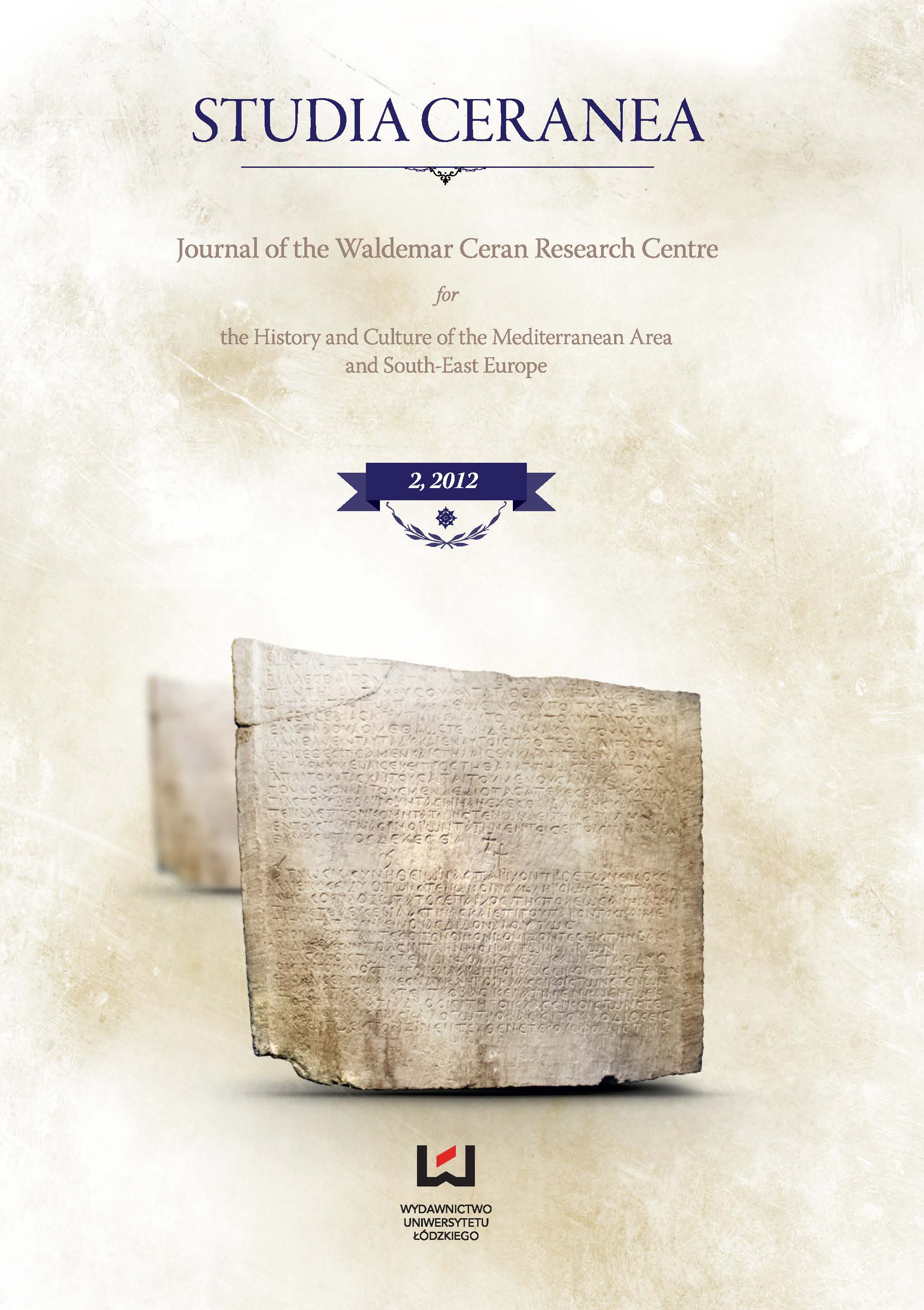On Some Fiscal Decisions of Caligula and Vespasian
DOI:
https://doi.org/10.18778/2084-140X.02.05Abstrakt
The history of the Roman Empire is a history of continuously looking for new sources of state revenues. Numerous public loads, spontaneously created during the early Empire, without any deeper analysis, created a disordered mess of particular and curious taxes rather than a centralized system as an instrument of controlling economic processes. The tax decisions of the emperors mentioned in the title, in spite of having a significant influence on the state treasury, were, in fact, of the same disordered nature.
Pobrania
Bibliografia
Pikulska-Radomska A., Centesima rerum venalium i quinta et vicesima venalium mancipiorum: podatki od transakcji sprzedaży, [in:] O prawie i jego dziejach księgi dwie. Studia ofiarowane Profesorowi Adamowi Lityńskiemu w czterdziestolecie pracy naukowej i siedemdziesięciolecie urodzin, vol. I, Białystok– Katowice 2010, p. 101–105.
Google Scholar
Millar F., The Fiscus in the First Two Centuries, „Journal of Roman Studies” 53, 1963, p. 29–42.
Google Scholar
Krajewski P., Finanse publiczne, [in:] Rzymskie prawo publiczne, ed. B. Sitek, P. Krajewski, Olsztyn 2004, p. 109–123.
Google Scholar
Suetonius, De vita caesarum / The Lives of the Caesars, IV, 40, trans. J.C. Rolfe, London–New York 1914.
Google Scholar
Cassius Dio Cocceianus, Historia Romana, LIX, 28, 8, trans. E. Cary, H.B. Foster, vol. VII, Cambridge 1959.
Google Scholar
Günther S., „Vectigalia nervos esse rei publicae”. Die indirekten Steuern in der Römischen Keiserzeit von Augustus bis Diokletian, Wiesbaden 2008.
Google Scholar
Josephus Flavius, Jewish Antiquities, XIX, 1, 4, 25, trans. L.H. Feldman, vol. VIII, Cambridge 1965.
Google Scholar
Sokala A., Meretrix i jej pozycja w prawie rzymskim, Toruń 1998.
Google Scholar
Cagnat R., Etude historique sur les impôts indirects chez les Romains jusqu’aux invasion des barbares, Paris 1882.
Google Scholar
Kaser M., Das römische Zivilprozessrecht, München 1966.
Google Scholar
Camacho de los Rios M., Vectigalia. Contribucion al estudio de los impuestos en Roma, Granada 1995.
Google Scholar
Tacitus, Libri ab excessu divi Augusti, XIII, 51, ed. P.K. Huibregtse, vol. I, Groningen 1958.
Google Scholar
The Roman Imperial Coinage, ed. C.H.V. Sunderland, R.A.G. Carson, vol. I, ed. C.H.V. Sunderland, London 1984.
Google Scholar
France J., Quadragesima Galliarum: l’organisation douanière des provinces alpestres, gauloises et germaniques de l’Empire Romain (Ier siècle avant J.-C. – IIIe siècle après J.-C.), Rome 2001.
Google Scholar
Robinson O., Ancient Rome: City Planning and Administration, s.l. 2003.
Google Scholar
Courrier C., Rome et ses déchets: salubrité et insalubrité d’une mégalopole antique, http://pradis.ens-lyon.fr/article.php3?id_article=184 [26 VI 2012]
Google Scholar
Corpus Iuris Civilis, ed. T. Mommsen, vol. I, Berolini 1906.
Google Scholar
Dureau de la Malle M., Economie politique des Romains, Paris 1840.
Google Scholar
Wacke A., Protection of the Environment in Roman Law?, „Roman Legal Tradition: A Journal of Ancient, Medieval and Modern Civil Law” 1, 2002, p. 1–24.
Google Scholar
Shaw B. D., Roman Taxation, [in:] Civilization of the ancient Mediterranean: Greece and Rome, ed. M. Grant, R. Kitzinger, New York 1988, p. 809–810.
Google Scholar
Pobrania
Opublikowane
Jak cytować
Numer
Dział
Licencja

Utwór dostępny jest na licencji Creative Commons Uznanie autorstwa – Użycie niekomercyjne – Bez utworów zależnych 4.0 Międzynarodowe.














